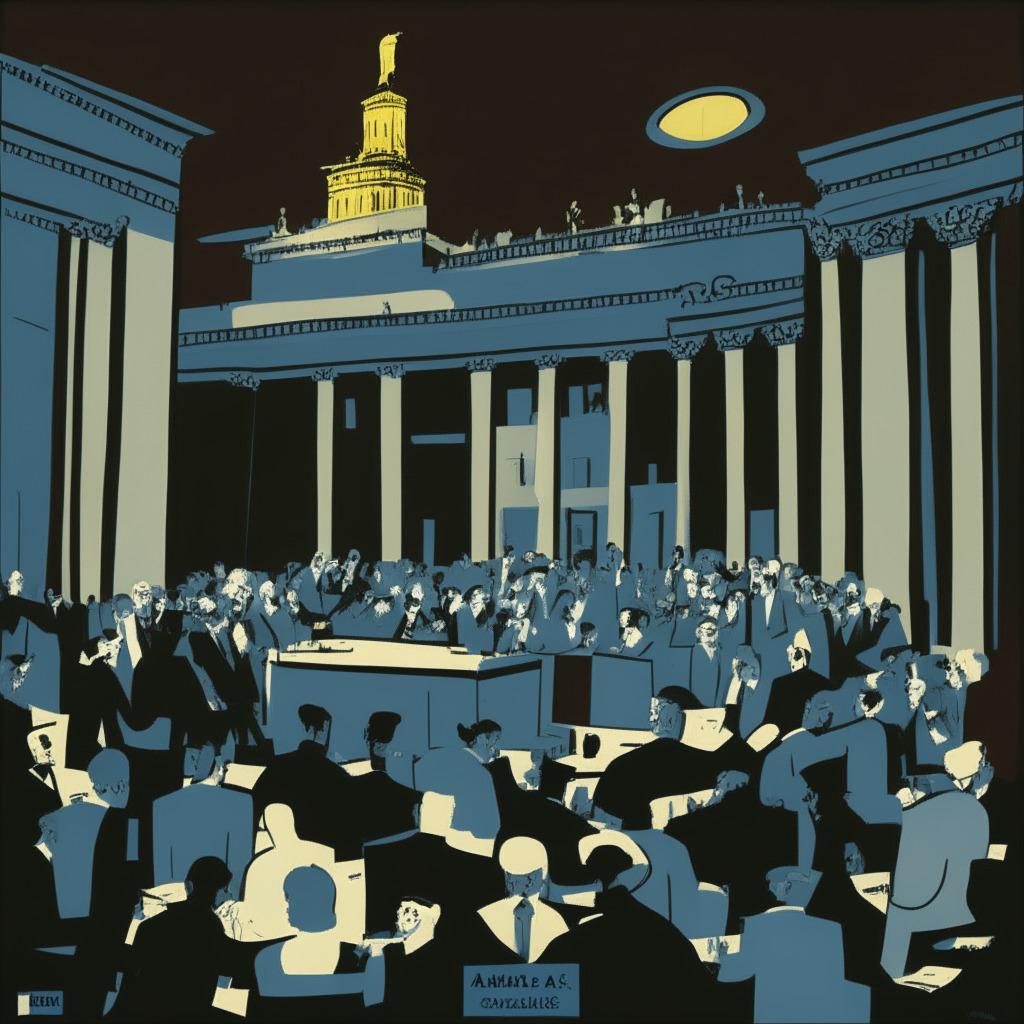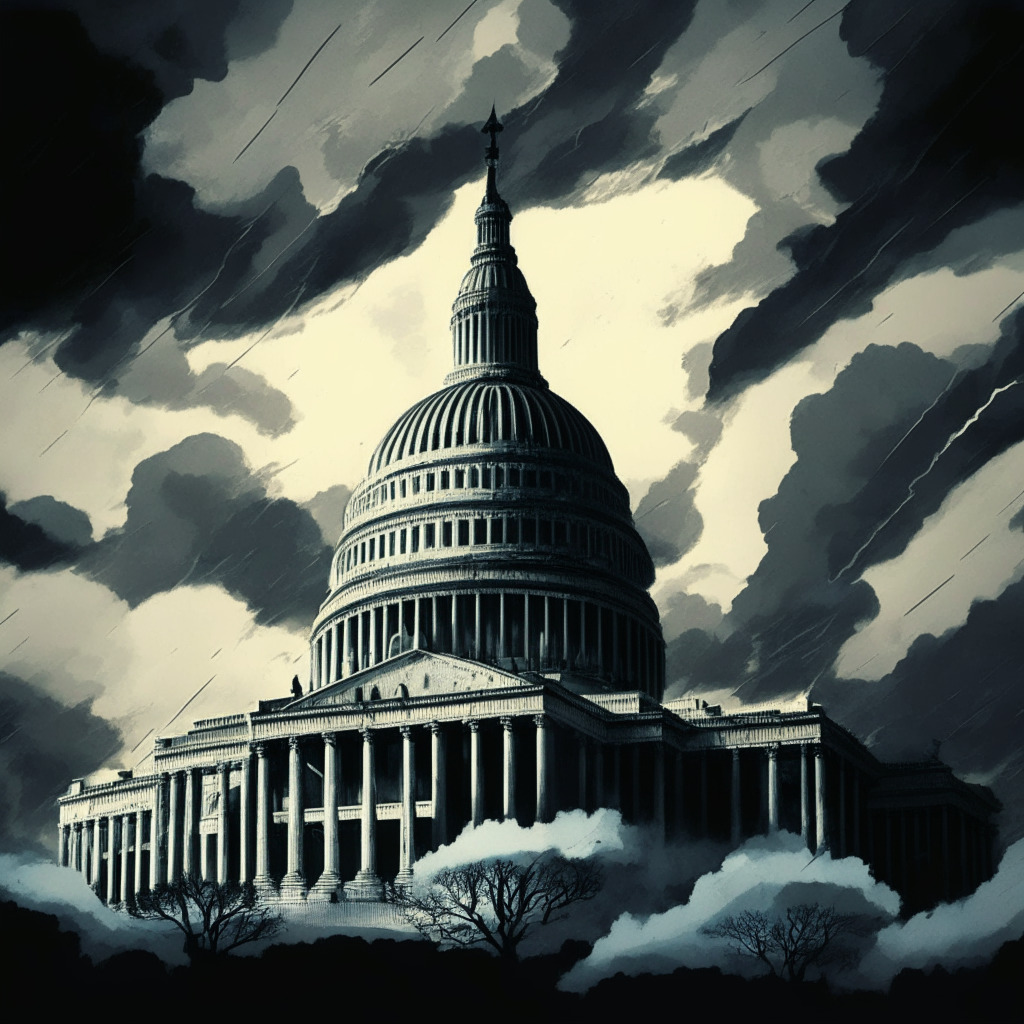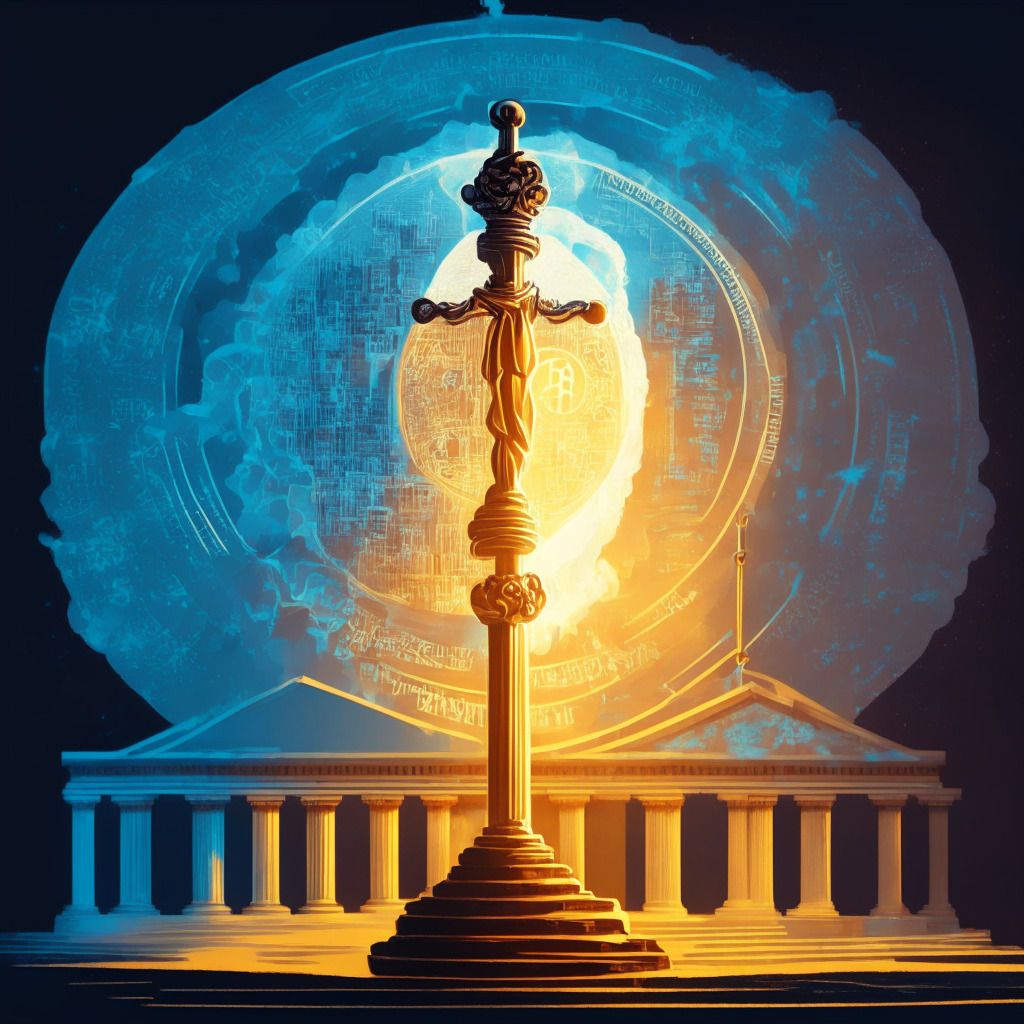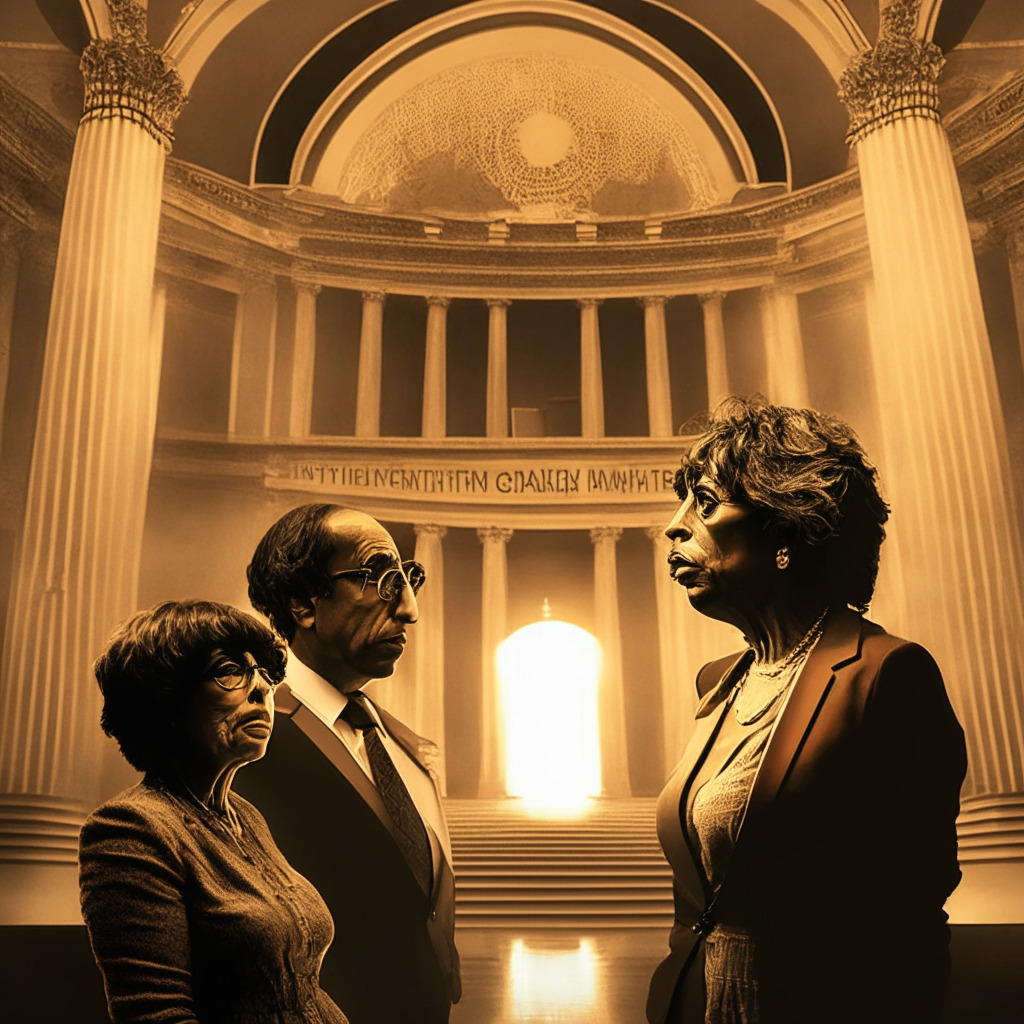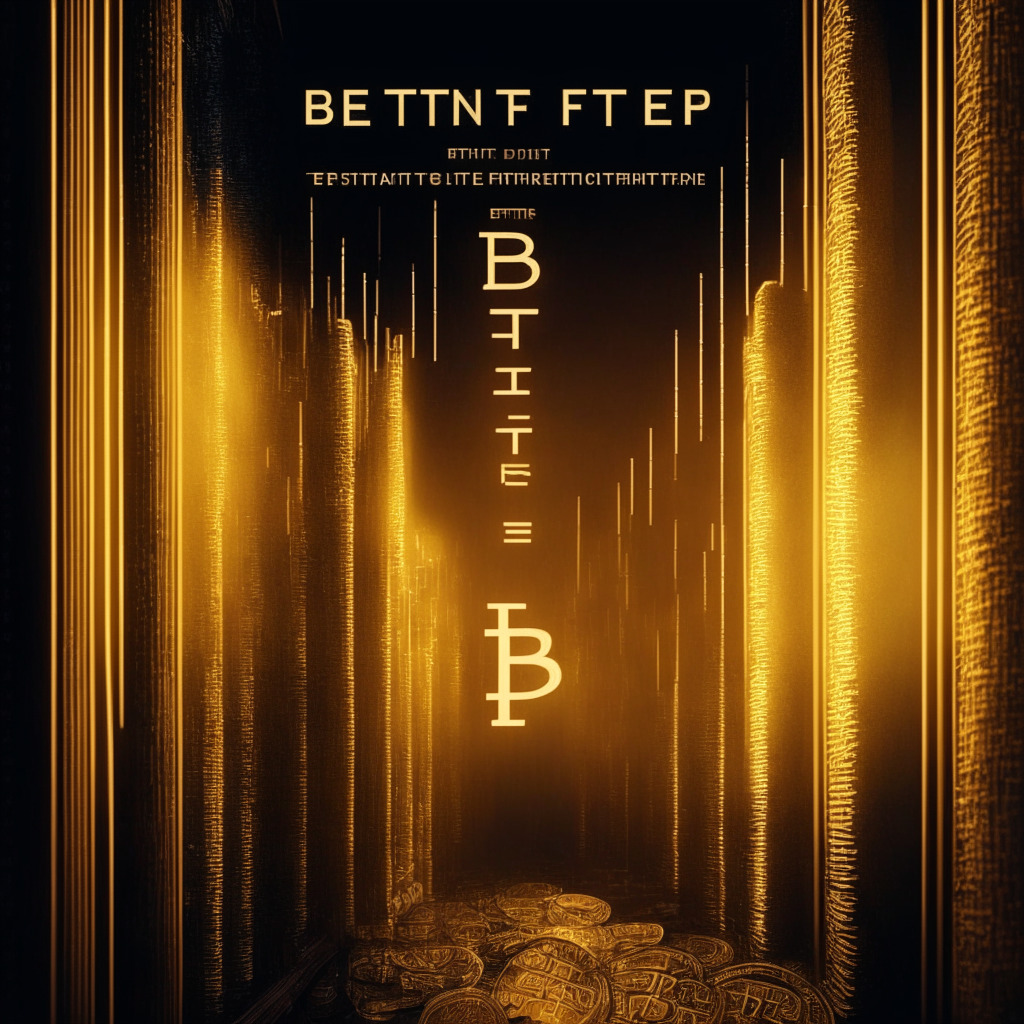The House Financial Services Committee is preparing to discuss the implications and regulation of a digital dollar or Central Bank Digital Currencies (CBDCs), along with private sector alternatives. This conversation, following various states erecting legislative boundaries for CBDCs and $41 million hacking of a crypto site, underlines the need for balance between innovation and robust regulatory frameworks.
Search Results for: United States House Financial Services Committee
Navigating the Crypto Course amidst the United States’ Macroeconomic Shocks
The crypto market closely watches upcoming U.S macroeconomic events. Despite a favorable swing in the CPI, the US central bank sticks to hiking the interest rate. The hawkish financial stance affects crypto prices, increasing investor concerns about central bank overreach. Other significant influences include retail sales, industrial productivity, home sales, and weekly jobless claims data.
Upcoming US Financial Services Committee Hearing on Digital Assets: What to Expect
The United States Financial Services Committee has scheduled a hearing on June 13 titled “The Future of Digital Assets: Providing Clarity for the Digital Asset Ecosystem.” It aims to discuss critical issues concerning digital assets and provide clarity for the crypto community.
Title: Crypto Clash in Congress: U.S. House Committees to Embark on Unprecedented Joint Hearings for Digital Assets Regulation
The U.S. House of Representatives is taking major strides towards addressing digital asset regulations as […]
US Central Bank Digital Currency: Speed of Transaction vs Privacy Concerns
“The United States House Financial Services Committee is considering further restrictions on a central bank digital currency (CBDC). Critics argue that a CBDC would centralize control, contradicting the philosophy behind cryptocurrency, and posing potential privacy risks. Despite some progress, the future of a U.S. CBDC remains uncertain.”
Pathway to Digital Commodities: Balancing Innovation and Regulatory Compliance in Crypto
The draft bill by the United States House Financial Services Committee and House Agriculture Committee proposes a pathway for certain crypto assets to be labeled as digital commodities, offering regulatory clarity for crypto firms. However, it also raises concerns over digital assets’ classification and potential limitations due to increased regulatory measures.
Crypto Regulatory Suspense: SEC’s Stance, Stakeholder Worries, and an Uncertain Future
“The U.S. House Financial Services Committee may subpoena the SEC over undisclosed documents related to FTX’s former CEO. The Committee claims the SEC’s lack of cooperation is compromising transparency and hindering digital asset ecosystem growth. This case demonstrates how regulatory bodies are scrutinizing the digital asset industry.”
Crypto Regulation in the US: Balancing Innovation and Consumer Protection
“The US House Financial Services Committee is examining legislation for regulatory clarity in the crypto and blockchain space, including the Financial Innovation and Technology for the 21st Century Act. Critics are concerned about potential favoritism towards cryptocurrency firms over consumers and the possibility of mishandling customer funds. Regardless of outcome, there’s widespread acknowledgment of the urgent need for comprehensive cryptocurrency regulation.”
Stablecoin Bill: Federal vs State Regulation and Impact on Digital Asset Ecosystem
The third draft of the new stablecoin bill, “The Future of Digital Assets: Providing Clarity for the Digital Asset Ecosystem,” proposes the Federal Reserve as the key regulator for stablecoins. The bipartisan bill aims to offer comprehensive guidance on supervising and enforcing stablecoin markets, covering aspects like issuer requirements and payment stablecoins.
AI vs. Human Governance: Debating Regulatory Efforts and Crypto Restrictions Worldwide
AI experts sign an open statement highlighting the need for mitigating extinction risks from AI, as global regulatory efforts increase. Binance restricts privacy tokens trading in four European countries, while the MiCA cryptocurrency regulatory framework is signed into law.
Government Shutdown Dodged: Possible Fallout for Cryptocurrency Regulation
“The future of cryptocurrency regulation was at risk with the potential for a government shutdown. This stalemate could have hindered several key crypto-focused bills, including the Financial Innovation and Technology for the 21st Century Act, the Blockchain Regulatory Certainty Act, among others, shaping crypto’s future.”
Expanding Horizons: Ledn’s Ethereum Yield Product & Coinbase’s Regulatory Campaign
Ledn is introducing an Ethereum yield product in response to user demand for simpler staking alternatives. Their new offering is “ring-fenced,” providing a safety layer against bankruptcy. Ledn is also launching a stablecoin Growth Account, though not available in the U.S. or Canada. Meanwhile, Coinbase is seeking clearer crypto regulations, despite skepticism due to political and regulatory concerns.
Kraken’s Leap into Stock Trading: A Bold Move or a Risky Venture?
“Kraken, a crypto exchange, is reportedly considering a venture into US stock trading, planning to launch its stock trading services in the US and UK in 2024, despite legal and regulatory challenges. The move indicates a potential significant diversification for platforms typically exclusively focused on digital assets.”
The US Political Unrest: A Roadblock for Crypto-focused Bills and Digital Asset Future
“The threat of a US government shutdown could influence the future of digital assets. Crypto-focused bills like the FIT, Blockchain Regulatory Certainty Act, and Keep Your Coins Act risk being delayed. Any shutdown could stall these bills’ progress until government funding is secured for the next fiscal year.”
Balancing Acts: mBridge’s CBDC Project, Opportunities and Geopolitical Concerns
The mBridge Central Bank Digital Currency (CBDC) project, comprising members from China, Hong Kong, Thailand, UAE, and BISIH, is preparing for expansion. The project offers faster, cost-effective, and transparent cross-border transactions. Concerns rise from potential exploitation for sanctions evasion.
US Crypto Regulation: An Uneven Playing Field or Necessary Oversight?
The Securities and Exchange Commission’s (SEC) regulation of cryptocurrency firms like Binance, Coinbase, and Ripple, is creating dynamic shifts in the crypto world. Some firms are facing a ‘regulation by enforcement’ approach, while others like Prometheum, have found compliance success, sparking investigations and controversy over potential ‘sweetheart deals.’
Unraveling the IRS Draft on Digital Asset Reporting: A Regulatory Leap or Misguided Move?
The US IRS has issued draft guidelines on reporting rules for digital asset brokers. Aimed at regulating the digital asset industry, this regulation intends to streamline tax reporting and prevent fraud, proposing to raise $28 billion in fresh tax over a decade. Critics label it as “misguided” and “an attack on the digital asset ecosystem.”
Navigating the Stablecoin Storm: The Push for Regulation Amid Market Instability
Circle’s Chief Strategy Officer, Dante Disparte, emphasizes the need for federal regulation of stablecoins amid market volatility and banking mishaps. Amidst concerns of “counterfeit US dollars using cryptographic methods”, Disparte sees regulation as a safeguard for investors and a protection of monetary policy.
US Lawmakers, SPBD Licenses, and Crypto: Unraveling a Tangled Web of Regulation and Politics
US lawmakers have raised concerns over the issuance of a Special Purpose Broker-Dealer license to Prometheum amid questions about its operations and alleged ties to the Chinese Communist Party. Meanwhile, Coinbase is advocating for pro-crypto political figures, despite controversies which cast a shadow over its initiative. The future of crypto regulation remains unpredictable.
U.S Crypto Regulation: Balancing Innovation, Market Expansion and Legislative Oversight
Grayscale’s CEO expresses concerns about U.S. regulations potentially hindering innovation in the crypto sector. Hopes lie on recent legislation effort from Congress for clearer rules. However, concerns over the SEC’s ambiguous methodology for Bitcoin ETFs approval persist, questioning the sustainability of such products in the changing market.
The SEC’s Crypto Crackdown: Necessary Oversight or Innovation Barrier?
“Bittrex agreed to a $24 million settlement following SEC allegations of operating as an unregistered securities exchange, part of an acceleration of SEC’s enforcement on disruptive crypto firms. The aggressive regulation is critiqued for thwarting investment and innovation, pushing the industry to more amiable jurisdictions like UAE or UK.”
Ethereum-based PYUSD: A Harbinger of Mainstream Adoption or Threat to Asset Control?
The new Ethereum-based stablecoin, Paypal USD (PYUSD), has stirred the crypto community. While many view it as a step towards Ethereum’s mainstream adoption, concerns about eroding decentralization and asset control are also rising. Future impacts on Ethereum’s market value are being closely watched.
U.S. Crypto Regulation: Balancing Innovation and Compliance in the Blockchain Era
“The U.S Congress moved closer to regulatory clarity with two crypto-related bills: the Financial Innovation and Technology for the 21st Century Act, aimed at crypto company registrations, and the Blockchain Regulatory Certainty Act, aiming to cut down barriers for blockchain developers. However, potential conflicts between lawmakers and industry operators may lead to strenuous compliance requirements, possibly bringing the crypto industry closer to traditional finance rules and limitations.”
Navigating Crypto Legislation: Can the New U.S Federal Regulatory Framework Provide Clarity?
“The Financial Innovation Technology for the 21st Century Act, aimed at establishing a federal regulatory framework for cryptocurrency, has been forwarded to the full House of Representatives. This addresses the current industry confusion caused by a lack of explicit regulations, by providing clarified guidelines for crypto ventures.”
Sweeping U.S. Regulatory Acts: Crypto Advancement or Investor Risk?
The House Financial Services Committee approves a bipartisan bill, Financial Innovation and Technology for the 21st Century Act, aiming to provide regulatory clarity for cryptocurrencies. The Act delineates registration requirements for crypto firms and seeks to define if a cryptocurrency is a security or a commodity, extending the CFTC’s control over the crypto industry.
Legal Clash in US Crypto Regulations: Republicans and Democrats Weigh In
The House Financial Services Committee advances two crypto-related bills aimed to address blockchain-related dilemmas and establish a solid legal framework. Despite opposition, proponents claim these bills will prevent the U.S.’s lag in crypto regulation and provide clarity within the digital asset industry. However, skeptics express concern over potential diminished investor protection and misuse of power imbalance.
Crypto Regulatory Tug-of-War: An Analysis of Recent Developments & Legislative Initiatives
Senator Jack Reed introduced a bill to strengthen Know Your Customer and Anti-Money Laundering regulations within decentralized finance. Meanwhile, two House committees proposed a bill to clarify regulatory authorities’ jurisdiction over digital commodities. Despite opposition, these developments highlight the need for clearer DeFi regulations and could shape its future trajectory.
Coinbase CEO Meets US Lawmakers: Future of Cryptocurrency Legislation
The upcoming meeting between Coinbase CEO and US lawmakers could greatly influence cryptocurrency legislation. Topics include impacts of crypto technology on security, privacy, and climate, as well as crypto legislation. This meeting arrives amidst legal disputes and mixed opinions on potential regulations possibly hindering innovation and transaction privacy.
Digital Asset Market Structure: A Path for Crypto Regulation or Hindrance to SEC’s Authority?
House Financial Services Committee Chair Maxine Waters proposed the Digital Asset Market Structure bill, offering US-based digital asset exchanges a pathway for SEC registration, seeking regulatory clarity for the crypto industry. The legislation aims to approve digital securities, commodities, and stablecoins for trading while providing guidelines to distinguish between crypto-based securities and commodities.
US Lawmakers Target Banking Failures: Impact on Crypto and Blockchain Industries
In response to major banks’ failures, US lawmakers from the House Financial Services Committee have introduced a series of bills, although not specifically mentioning crypto or blockchain. The future of regulations surrounding banks and their potential impact on the cryptocurrency and blockchain industries remain uncertain, with past lawmakers expressing optimism on stablecoin bills.
Bitcoin ETFs Fuel Surge Past $30,000: Organic Growth or Temporary Respite?
Bitcoin prices surged past $30,000, spurred by announcements of interest in launching a Bitcoin ETF from legacy finance. The surge indicates organic growth and resilience despite skepticism and shifting possession of the Bitcoin supply between the U.S. and China.










